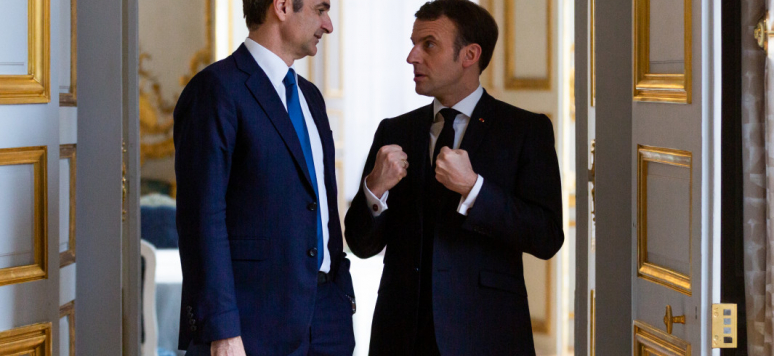Notes de l'Ifri - The French-Greek Partnership: Beyond the Eastern Mediterranean Notes de l'Ifri, février 2022

The bilateral defense agreement signed by France and Greece in September 2021 confirms the strategic turn of the relationship between the two countries. It was already unveiled in 2020 when Paris supported Athens to counter Turkish maritime operations that France and Greece considered very hostile.
This agreement confirms that the bilateral relationship is shifting towards a new balance. Greece, now out of the financial and political crisis, is becoming an interesting economic and diplomatic partner for France. Emmanuel Macron’s investment in Greece strengthens the “Mediterranean option” that was built up during the French president’s mandate. On the other hand, Paris is a natural sponsor for Athens, which is looking for reassurance and is seeking to exit its obsessional duel against Turkey, and whose diplomacy is now opening up to new opportunities beyond its immediate scope.
Originally portrayed as a contribution to the European strategic autonomy, the French-Greek Partnership perfectly fits in with the French Presidency of the EU Council’s program. However, the French-Greek option raises questions, both for the North Atlantic Treaty Organization (NATO) – its clause of mutual assistance (Art. 2) implicitly targets Turkey, which condemned the agreement – and the EU, as Germany displayed its skepticism regarding the agreement. Its stabilizing impact can therefore be discussed, especially in a region currently facing conflicting reconfigurations.
